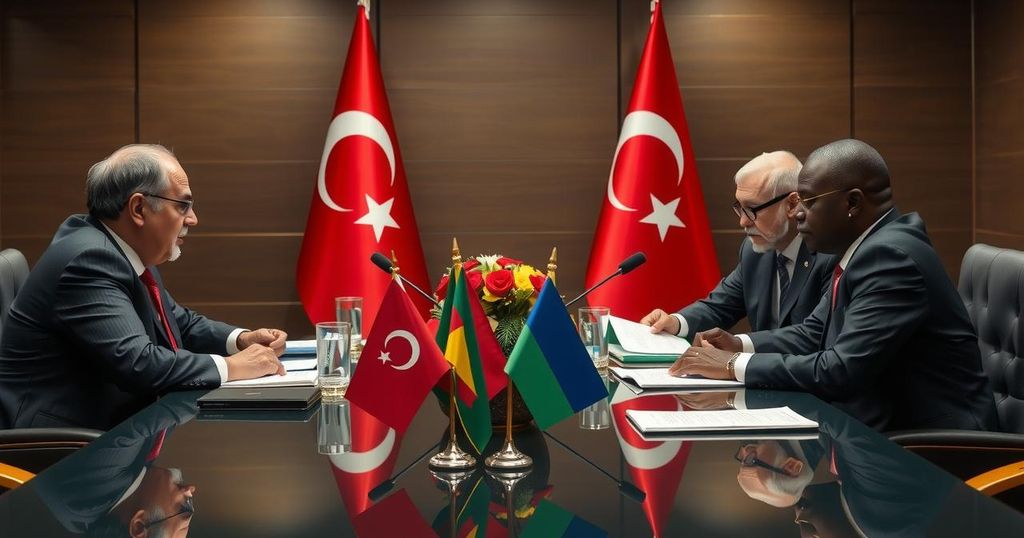Ethiopia and Somalia have reached a pivotal agreement via Ankara-mediated peace talks, aiming for improved relations and cooperation. Turkish President Erdogan highlighted the significance of this milestone and the focus on future collaboration, despite historical tensions between the nations. Both nations expressed gratitude for Turkey’s mediating role in achieving this reconciliation, seen as essential for regional stability and economic prosperity.
Turkish President Recep Tayyip Erdogan announced that Ethiopia and Somalia have reached a significant agreement during Ankara-mediated peace talks, aimed at resolving longstanding conflicts between the two nations. At a press conference held with Ethiopian Prime Minister Abiy Ahmed and Somali President Hassan Sheikh Mohamud, President Erdogan stated that this initiative marks a crucial first step towards fostering peace and enhancing cooperation. He articulated his pleasure in hosting the discussions, which are expected to pave the way for collaboration and stability within the region.
Erdogan highlighted the Ankara Process, initiated around eight months prior, underscoring the mutual trust and goodwill between Somalia and Ethiopia towards Turkey as a mediator. He emphasized the declaration agreed upon during the talks, which centers on future collaborations rather than past grievances, thereby focusing on key principles essential for constructive relations moving forward. He expressed optimism that this agreement will lay a robust foundation for joint prosperity and respect between the two countries.
The Turkish leader lauded the commitment of both Prime Minister Ahmed and President Mohamud in achieving this historic reconciliation and pledged Turkey’s support in facilitating necessary projects for regional peace and growth. Furthermore, he acknowledged Ethiopia’s need for access to maritime routes to enhance trade opportunities, stating, “This world is enough for all of us. Together, we will undoubtedly secure our place here, and we will take these steps together.”
Both leaders from Ethiopia and Somalia extended their gratitude towards Turkey for its mediative role in settling territorial and political disputes, particularly in light of the tensions that rose following Ethiopia’s agreement with Somaliland regarding port use. This agreement underscores Ethiopia’s continued struggle since losing access to the Red Sea, which has hindered its maritime trade capabilities since the 1990s due to historical conflicts.
The article outlines a significant diplomatic achievement between Ethiopia and Somalia mediated by Turkey. Historically, relations between these neighboring nations have been complex, marked by territorial disputes and economic challenges. Ethiopia became landlocked following the independence of Eritrea in the 1990s, which hampered its access to crucial maritime routes. The Ankara Process reflects an emerging cooperation as both countries seek to transition from conflict to collaboration, supported by Turkey’s mediation efforts aimed at restoring peace and stability in the Horn of Africa.
In summary, the peace agreement brokered by Turkey represents a pivotal step in enhancing relations between Ethiopia and Somalia. This initiative, which prioritizes future collaboration and prosperity, signifies a commitment to overcoming historical grievances. With the ongoing support from Turkey, both nations aim to foster not only bilateral cooperation but also regional stability, which is critical for their mutual growth and economic development.
Original Source: www.aa.com.tr







